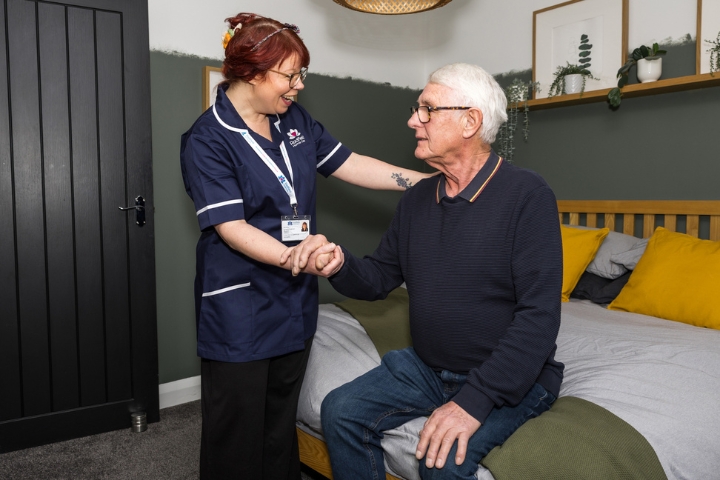
National Office
Please enter the office location/term above to receive results for your closest office as well as information matches
As we grow older, staying healthy becomes about more than just avoiding illness. It is about feeling well, remaining independent, and continuing to enjoy life on your own terms. In this article, we explore what healthy ageing really means and how it can be supported at home, including with the help of home care in Watford and Borehamwood.
According to the World Health Organization (WHO), healthy ageing is “the process of developing and maintaining the functional ability that enables wellbeing in older age.” In simpler terms, it is about maintaining the physical and mental capacity to do what matters most to you for as long as possible.
A key distinction the WHO makes is between lifespan and healthspan:
As people are living longer, there is an increasing focus on ensuring those extra years are lived well, not just long.
Since 2000, global life expectancy has risen, reflecting progress in medicine, healthcare, and living conditions. However, many people now spend more years living with chronic illness or disability.
This is where healthspan becomes especially important. The goal is not only to add years to life, but to add life to those years.
Healthspan refers to the years of life spent in generally good health, without chronic disease or serious limitations. It reflects how long you can:
Imagine spending the last 15 to 20 years of life unable to do the things you love. Supporting a longer healthspan helps prevent that scenario and improves overall quality of life.
Ageing well is deeply personal and can look different for each person. However, the WHO outlines several core aspects of functional ability that contribute to healthy ageing. These include:
At Radfield Home Care Watford & Borehamwood, we see these factors in action every day. Whether it is helping someone prepare meals, go for a walk in a local park, or stay connected to loved ones, our Care Professionals provide personalised care at home in Borehamwood and Watford to support each client’s healthspan.
Standing up from a chair may seem effortless when you are younger, but for many older adults it can become difficult without assistance. This simple act can be a signal of declining physical function.
When mobility begins to decrease, it can limit independence, social engagement, and mental wellbeing. Supporting physical strength through daily movement and assistance when needed can help prevent this decline.
Research suggests that around 20 percent of life is now spent in poor health. While people are living longer thanks to medical advancements, many of those added years are affected by chronic conditions or reduced physical and mental ability.
One common tool is Health-Adjusted Life Expectancy (HALE), which combines:
At an individual level, healthspan is reflected in how long a person remains:
Although there is no single “healthspan diet,” research shows that:
Exercise is one of the most effective tools for maintaining healthspan:
Your surroundings shape how you age:
Cognitive decline is a common concern as we age. However, lifestyle choices can help:
To some extent, yes. While some decline with age is natural, many factors that influence ageing can be managed. Researchers are now looking at the root causes of ageing such as inflammation and oxidative stress, with the goal of delaying or preventing multiple age-related illnesses.
Supporting your body and mind with the right choices today can make a difference in how well you live tomorrow.
Healthy ageing involves more than just physical care. It includes mindset, habits, relationships, and community.
A helpful place to begin is by asking:
Reflecting on these questions can guide more meaningful decisions about long-term wellbeing.
At Radfield Home Care Watford & Borehamwood, we believe everyone deserves the chance to age with dignity, comfort, and joy in the place they know best, their own home.
Our friendly Care Professionals support older people in Watford and Borehamwood by helping them maintain:
Whether you’re looking for high-quality home care services in Watford, Borehamwood or the surrounding areas, or you’re considering a rewarding career where you can truly make a difference, we are here to help.
Call us on 01923 624 674 or email [email protected] to find out more.
Get in touch with your local Radfield Home Care office today and find out more about the support we offer and the difference we can make.